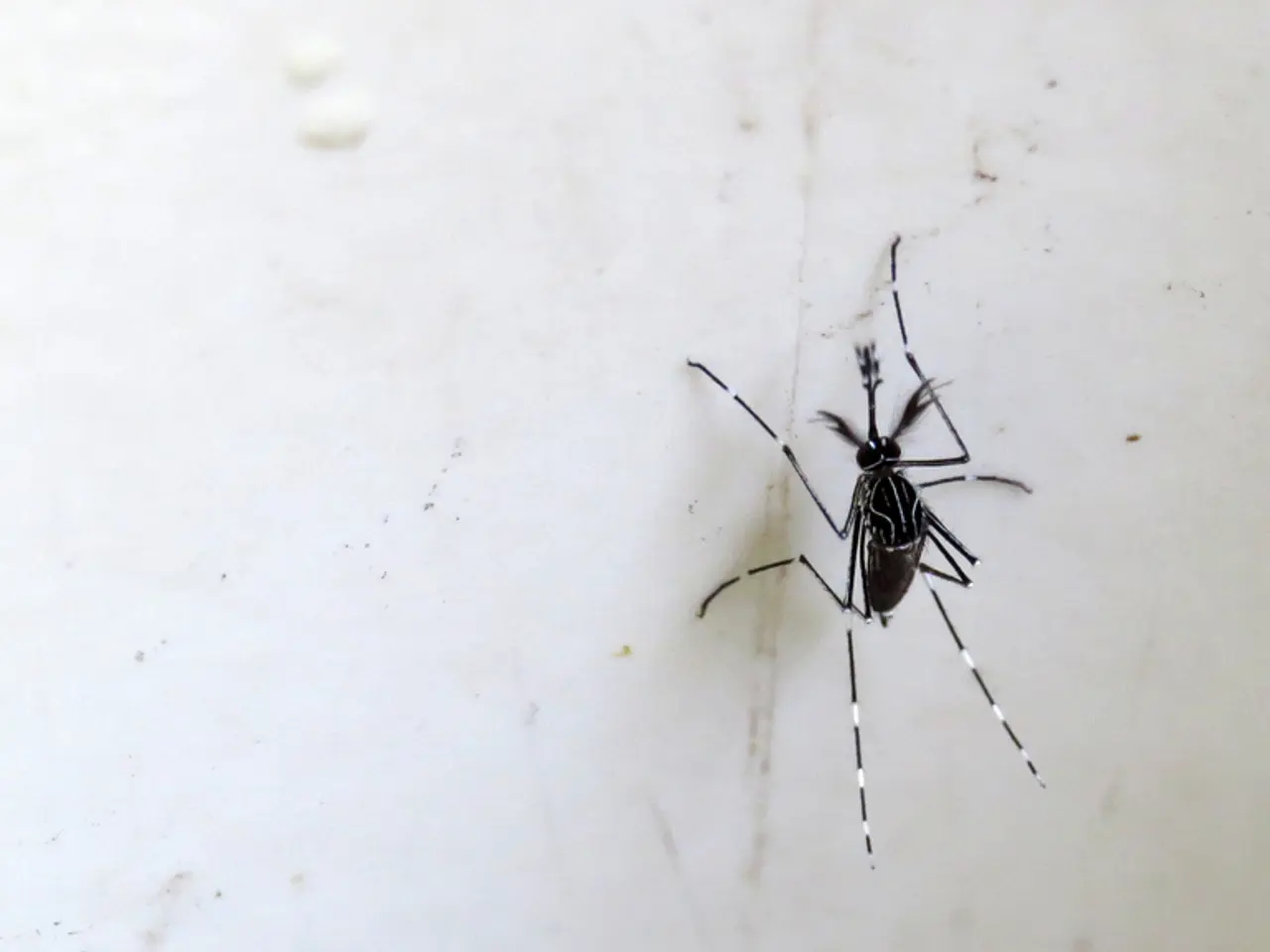WHO issues dire alert over escalating chikungunya cases
## Global Alert for Chikungunya Virus Outbreak
The World Health Organization (WHO) has raised a global alert about the escalating risk of a chikungunya epidemic, reminiscent of the major outbreak that occurred from 2004 to 2005. This mosquito-borne disease has been detected in over 119 countries, potentially affecting approximately 5.6 billion people[1][2].
### Current Outbreak Trends
The current outbreaks are primarily affecting regions like the Indian Ocean islands and spreading to other areas. Notable islands such as Reunion, Mayotte, and Mauritius have reported significant outbreaks, with Reunion seeing an estimated one-third of its population infected[1][2].
The virus is rapidly spreading from these islands to countries in Africa and South East Asia[5]. Among the affected nations are Kenya, Madagascar, Somalia, and India.
### Prevention Measures
Preventing the spread of chikungunya involves reducing mosquito populations and avoiding bites:
1. **Mosquito Repellents**: Use mosquito repellents to protect against bites, especially during peak mosquito activity in early morning and late afternoon[1]. 2. **Eliminate Standing Water**: Ensure that no standing water is left in containers like buckets, as this is where mosquitoes breed[1]. 3. **Travel Precautions**: U.S. travelers and others should be aware of the risk in specific areas and consider vaccination if available or necessary[3]. 4. **Public Health Measures**: Implementing vector control measures and enhancing surveillance can help mitigate outbreaks[4].
These prevention strategies are vital in reducing the risk of infection and controlling the spread of the virus, especially in areas with high mosquito populations due to climate change.
### Symptoms and Treatment
Chikungunya can cause fever, joint pain and swelling, headache, a rash, fatigue, vomiting or nausea, and conjunctivitis or red eyes[1]. There is no specific treatment for chikungunya, but victims can alleviate symptoms through rest, hydration, joint pain relief medicines and creams, over-the-counter acetaminophen and painkillers, and chronic arthritis medications[1].
The 2004 epidemic affected nearly 500,000 people, according to WHO spokesperson Diana Rojas Alvarez[6]. The WHO claims they are receiving the same patterns and warning signs as they did during the previous major outbreak, two decades ago[7].
As the chikungunya virus is spread through the bites of Aedes mosquitoes, including the tiger mosquito, it is crucial for individuals to take preventative measures to protect themselves and their communities. The WHO continues to monitor the situation closely and urges countries to prepare for potential outbreaks.
- Science has provided solutions such as mosquito repellents to combat the Chikungunya virus, a disease that currently affects over 119 countries.
- Sleep is essential for individuals to recover and alleviate the symptoms of Chikungunya, like fever and joint pain.
- In the workplace-wellness context, employers can promote awareness about medical conditions like Chikungunya and encourage preventative measures.
- Chronic diseases, such as Chikungunya, can take a toll on a person's overall health, making proper diagnosis and care crucial.
- The warning signs for Chikungunya's resurgence closely resemble those of the 2004-2005 major outbreak, causing concern in the healthcare industry.
- Cancer and other respiratory conditions can exacerbate the effects of Chikungunya due to weakened immune systems.
- Digestive health can also be affected by viruses like Chikungunya, causing symptoms like nausea and vomiting.
- Proper eye-health care is important for managing Chikungunya-related eye symptoms, such as conjunctivitis or red eyes.
- Hearing is unaffected by Chikungunya, but overall health and wellness should still be prioritized during outbreaks.
- Regular exercise and fitness routines can help boost the immune system and help combat diseases like Chikungunya.
- Sexual health is separate from Chikungunya, but being aware of ongoing health issues and seeking medical attention is essential.
- Autoimmune disorders can increase the risk of contracting Chikungunya and experiencing more severe symptoms.
- Climate change has contributed to the expansion of mosquito populations and the increased risk of Chikungunya outbreaks.
- Mental health plays a significant role in recovery from Chikungunya, as stress and anxiety can exacerbate symptoms.
- Mens-health and Chikungunya are not directly related, but overall health is essential for preventing and managing the virus.
- Skin-care products can help alleviate Chikungunya-related skin irritations and prevent infection.
- Therapies and treatments for Chikungunya are limited, making prevention crucial in controlling the spread.
- Nutrition plays a vital role in overall health and can help support the immune system during a Chikungunya outbreak.
- Aging can make individuals more susceptible to Chikungunya and its complications, highlighting the importance of vaccination and prevention measures.
- Womens-health is important, but WHO's warnings about Chikungunya outbreaks apply equally to all genders.
- Parenting includes taking preventative measures to protect children from mosquito bites and Chikungunya infection.
- Weight-management practices can help individuals maintain a healthy weight and reduce the risk of Chikungunya-related complications.
- Cardiovascular health is crucial for supporting the body during Chikungunya recovery, as joint pain and inflammation can strain the heart.
- The finance industry can invest in medical research for new Chikungunya treatments and vaccines, contributing to the global effort.
- Medicare can provide coverage for Chikungunya-related medical expenses, ensuring those at high risk have access to necessary care.
- CBD oil and other natural remedies may offer relief for Chikungunya-related pain, but should be used alongside conventional treatments.
- Neurological disorders like Chikungunya can cause long-term complications, emphasizing the need for continued research in environmental-science and healthcare.




